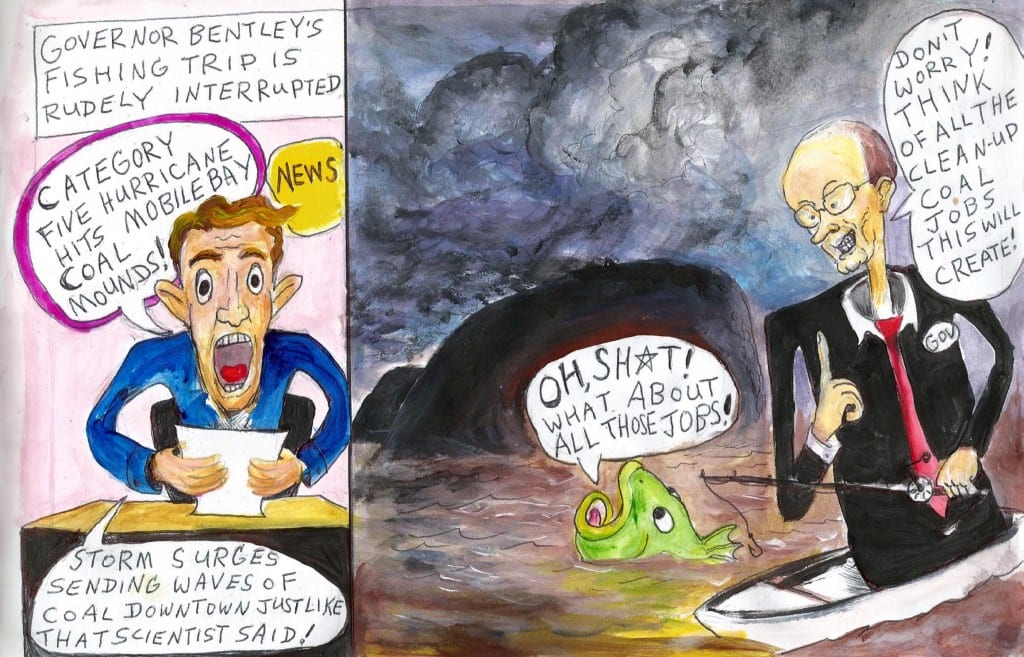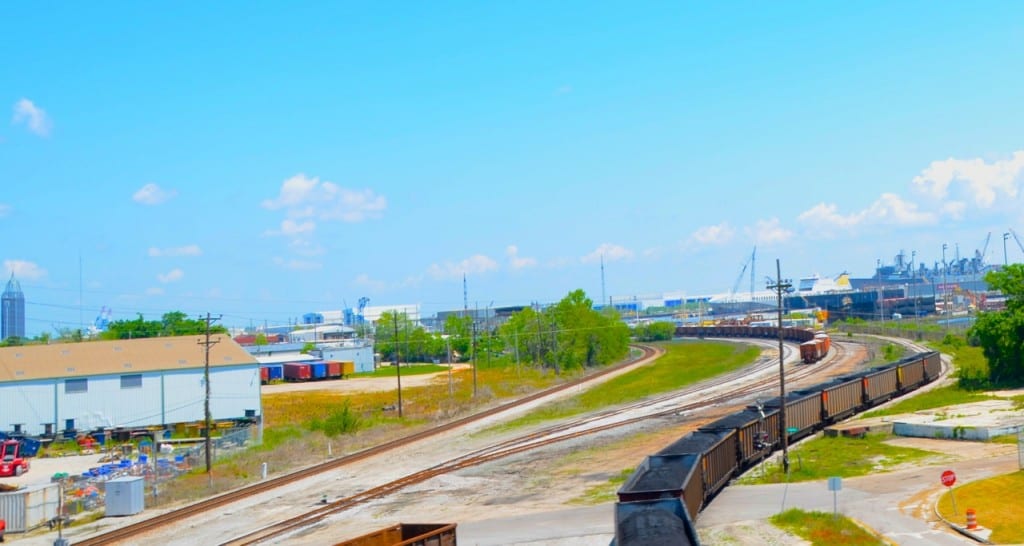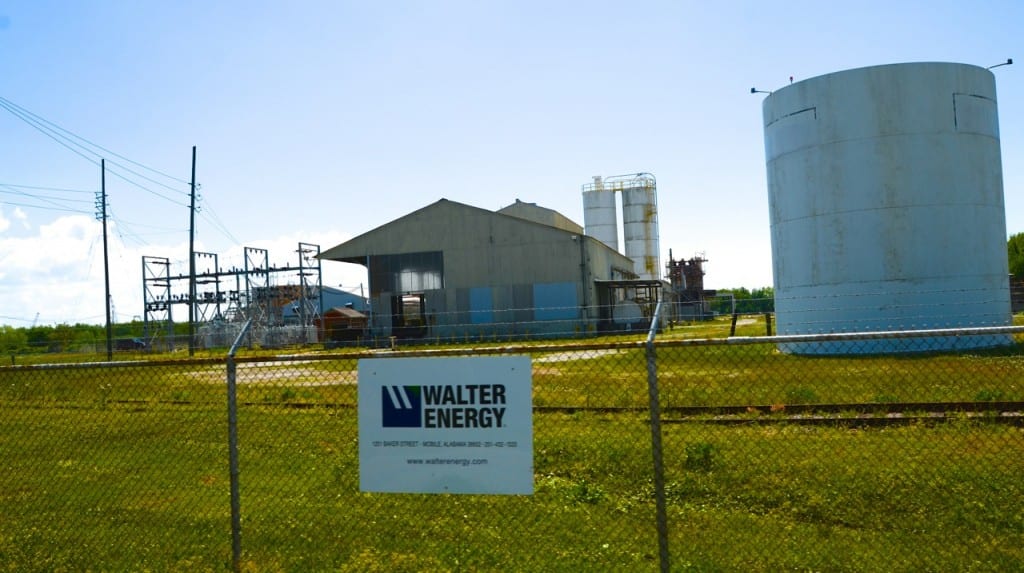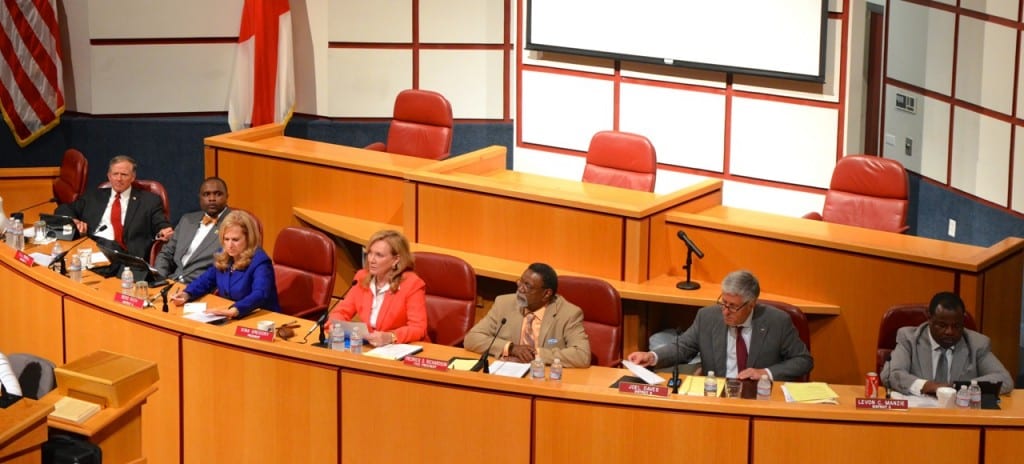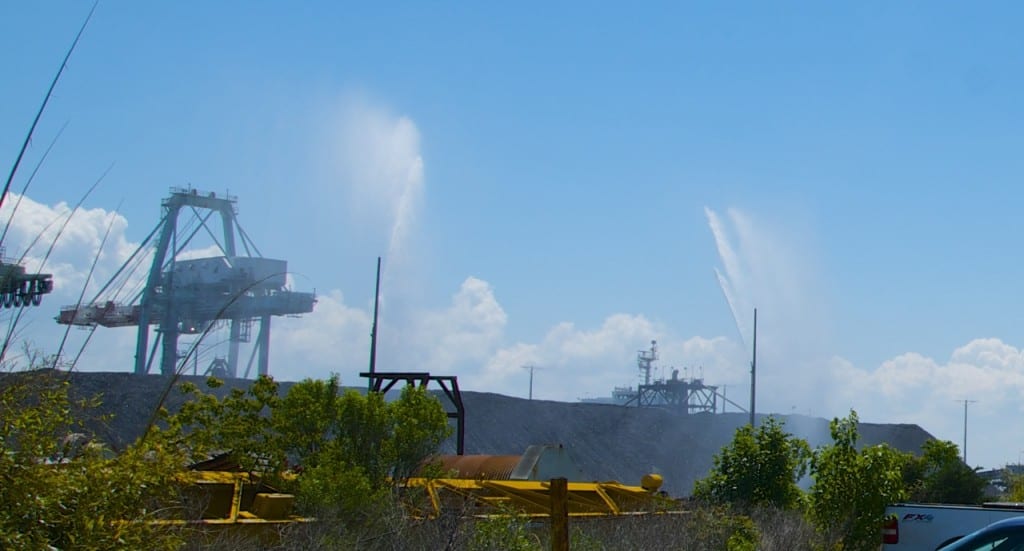
Water jets wet down a coal pile at an existing coal export terminal next to the proposed new one: Walter Simon
By Glynn Wilson –
MOBILE, Ala. — While many local and state governments across the country are joining the federal government in turning away from the development of fossil fuel production in favor of clean, renewable energy to fight climate change due to global warming and create the good, high paying jobs of the future, down South there is still a drive to continue giving tax incentives to big, old, dirty industries for a little paltry tax revenue, short term profits and a few meager jobs.
It is a bit of a mystery in a place like Mobile, Alabama, that there is not an all out split within the local chamber of commerce. It would seem there would be a war going on between those in the tourism related industries of the Gulf Coast who want to see people come to town and spend money visiting the area and eating the Gulf seafood on one side, and the purveyors of pollution in the oil, chemical and coal industries on the other. It’s sometimes hard to understand what goes on the minds of people who think you can have both along the same riverfront. But you have to understand how times have changed since the Reagan and Bush eras — and dissent is a four letter word.
The chief spokesman for the Mobile Area Chamber of Commerce stood before a packed City Council chambers of nearly 300 people — largely against the approval of a new coal export terminal on the riverfront, on Earth Day no less — and urged the council to vote for the coal terminal.
For two out of three hours set aside for public comments on a day established internationally to protect the planet, citizens of Mobile took to the microphone and urged the council to vote no. A lawyer for Walter Energy, the company which has purchased an old coal handling terminal and wants to build a new one in its place, was granted more than an hour to bring up a parade of witnesses urging the council to vote yes to side with industry over the environment.
Knowledgeable local sources say big industry has the votes and will most likely win the day, just as they did when it came to a fight against building a crude oil pipeline through the area’s only source of fresh drinking water and through a historic local school yard.
A vote is still pending on approval of a massive Tar Sands crude oil tank farm along the same waterfront where city officials expect to capitalize on tourists coming for the view to board cruise ships, although the cruise ship terminal they invested millions to build sits as empty as a church on Ash Wednesday.
One of the most compelling witnesses against the Blue Creek Coal Terminal was a doctor, who urged the council to vote against the plant for health and environmental reasons.
“Why in 2014 are we proposing building a new coal terminal in the city of Mobile?” asked Dr. Ralph Pfeiffer, a heart surgeon at the University of South Alabama Medical Center. “The only bigger oxymorons to ‘clean burning’ Blue Creek coal are an ‘equitable divorce’ and ‘sanitary landfill’.”
He asked the council if they had not read any of the thousands of reports over the past 20 years about climate change and global warming.
“Someone has,” he said, quoting the vice president for strategic planning of the Exxon Mobile oil company from USA Today: “The risk of climate change is real and warrants action.”
“Coal is the number one source of carbon dioxide global warming in the entire world,” Dr. Pfeiffer testified. “So it doesn’t matter where it burns, here in Mobile, Brazil or Argentina.”
He pointed out that the Mobile area has not been exempt from severe climatic weather events already being seen around the globe. Two tornadoes hit Mobile last December, he pointed out.
“The odds of a tornado in Mobile in December are 1 in 200,000,” he said. “The odds of two of them in December are 1 in 200 million. Yet we had both of them. The negative impact of those minor tornadoes probably far exceeds any economic benefit of another coal terminal.”
He also pointed out that the chances are great that a 15 foot storm surge will hit the city one day and wash all the coal piles into Mobile Bay and “devastate the seafood industry,” he said, which is still trying to recover from the BP oil spill, an industry with 11,000 jobs and $500 million in economic benefit to the area.
He also held up the USA Today chart that showed Mobile ranking 181 out of 189 U.S. cities to live in.
“Nobody in this room is going to tell me that another coal terminal is going to give us a better rating of 181 out of 189,” he said. “I have no illusions of changing anyone’s mind here today. There are more people that believe in aliens and leprechauns than climate change in the city of Mobile. But we ignore the overwhelming scientific facts that we face every day. Some people simply cannot see the light until they feel the heat.”
Watch the video of Dr. Pfeiffer’s testimony here:
See more videos from the hearing here.
The City Council voted to delay a final vote on the coal terminal permit for two weeks.


